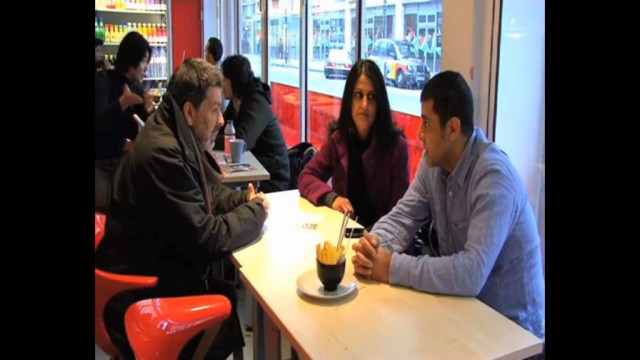Identity, religion, migration: Three British Asians in conversation
They share their experiences as second generation Asians growing up in Britain.

Three British Asians their experiences as second generation Asians growing up in Britain and wider issues of nationhood, identity, religion, migration in Britain today. PHOTO: SCREENSHOT
“Its not so much what you think you are, it is what other people perceive you to be,” says John, whose father is from India and mother is from Ireland.
John said that he does not have any allegiance to Britain despite growing up there and that’s something that has grown as he has grown. He added that he is “more interested in a wider notion of citizenship.”
Anita grew up in a predominately Asian area so her cultural influences were mostly Asian. When she was 11, her family moved to an area where they were the first Asian family on the street. They were met with some “negative interest” and racial attacks and various mocking gestures.
She also spoke about the “shock on people’s faces” upon seeing an Indian woman travelling when she went abroad. She mentioned that the cultural problems do get easier to handle with the “merging of cultures” and because Britain has become “much more culturally diverse.”
Anwar said he feels that “there is a kind of commonality of experience” between Hindus, Sikhs and Muslims who all define themselves as British Asians despite following different religions.
Anwar advised young people to decide their identities for themselves, “it is not for anyone else to tell you who you are.”
The video showed the varied experiences of three individuals in different situations and gave insight to the impact of this on their opinions and identities.
This film is part of Pakistan Calling, www.thersa.org/pkcalling a UK and Pakistan project by www.thersa.org and thesamosa.co.uk please visit www.thersa.org/pkcalling for more films on Pakistani civil society organisations, social entrepreneurs and individualswww.thersa.org/pkcalling - The RSA and The Samosa launched www.thersa.org/pkcalling to promote constructive cross-cultural dialogue between Britain and Pakistan. Show your support by watching the film.



















COMMENTS
Comments are moderated and generally will be posted if they are on-topic and not abusive.
For more information, please see our Comments FAQ